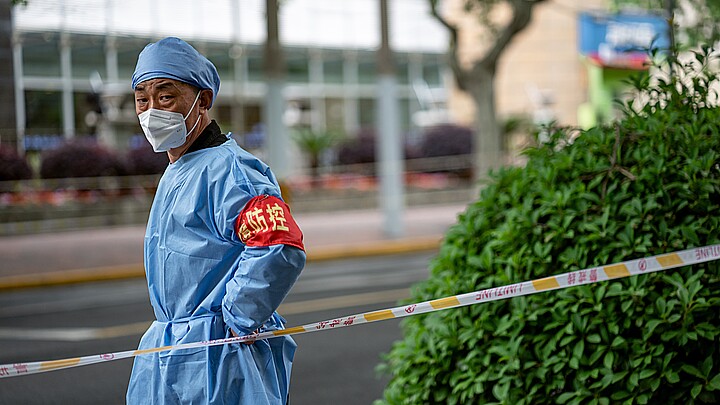Coronavirus
Second Chinese city forced into COVID lockdown as Olympics loom
A similar policy has been in place in X’ian, a city of 13 million in western China, since Dec. 23
January 6, 2022 6:02pm
Updated: January 7, 2022 1:10am
A Chinese city with a population of 1.1 million was locked down this week, making it the second city to be quarantined in this fashion as the 2022 Beijing Winter Olympic Games approach.
Yuzhou, about 434 miles (700 kilometers) southwest of Beijing, is requiring all residents to remain indoors, with only those involved in containing the disease allowed out. All public transportation and non-essential businesses have also been closed.
The strict measures come as Beijing looks to control outbreaks ahead of the Lunar New Year and the 2022 Winter Olympics it will host next month.
Foreign ministry spokesman Wang Wenbin assured reporters China had “formulated an efficient and highly effective defense system” for the upcoming Olympics.
One aspect is the return of a “bubble,” like the one used by the National Basketball Association (NBA) in 2020 during the final weeks of the regular season and for the playoffs. Thousands of staff and volunteers entered the bubble Tuesday, where they will have no physical contact with the outside world in order to limit the spread. Any international athletes, media and other participants who arrive later will also enter the bubble upon arrival, where they will remain until they depart.
Beijing’s Olympic bubble system is in line with its “COVID-zero” policy, which focuses on keeping infections low over a return to normalcy.
A similar policy has been in place in X’ian, a city of 13 million in western China, since Dec. 23. It reported 95 new symptomatic cases on Monday, down from a peak of 150 per day at the height of the city’s outbreak.
However, the strict lockdown has its trade-offs. Social media posts show how X’ian residents have been forced to barter supplies amid worries over food shortages.
"People are swapping stuff with others in the same building, because they no longer have enough food to eat," a resident told Radio Free Asia. The news outlet also reported that another man had wanted to trade a smartphone and tablet for rice.







